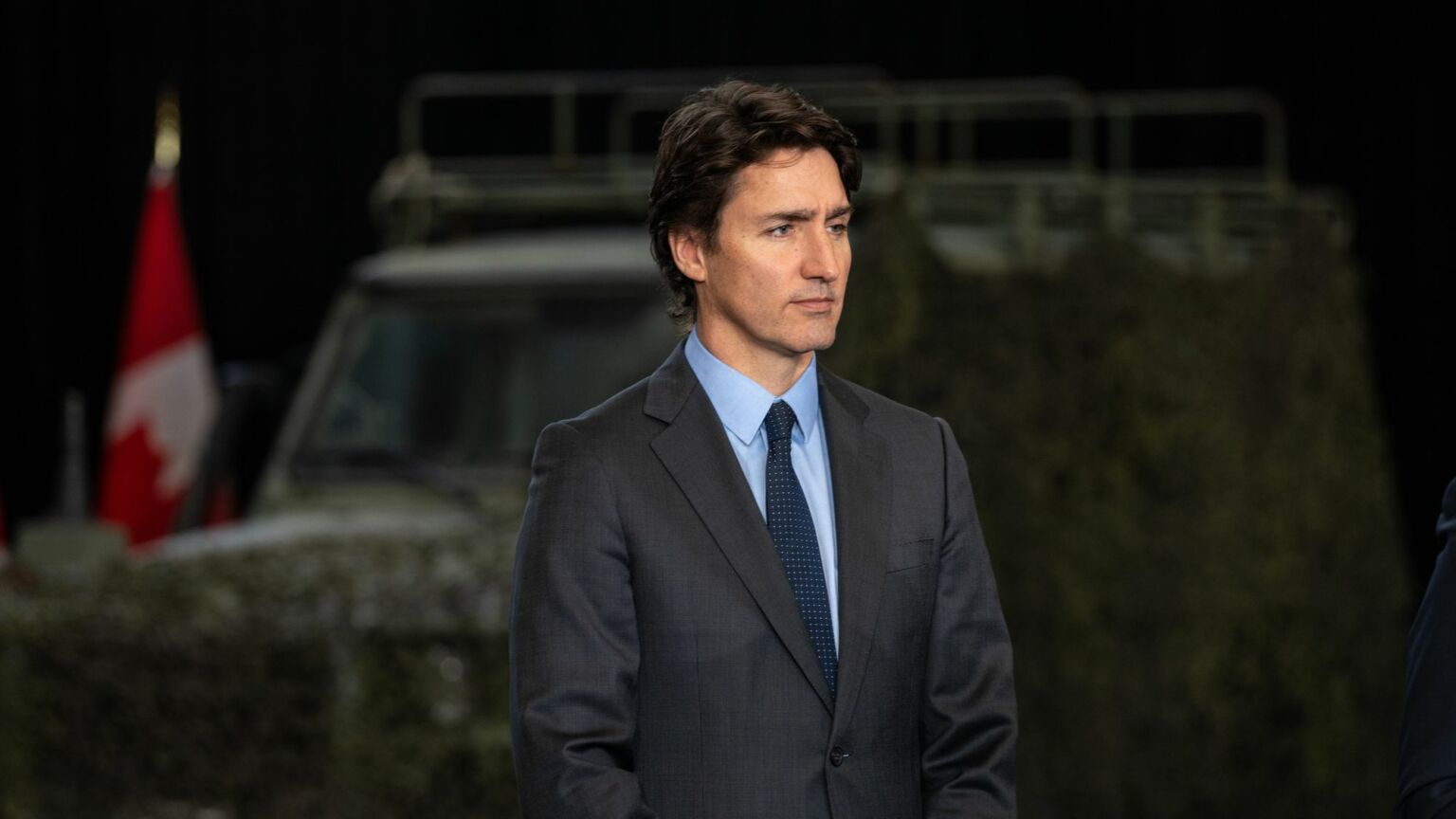Can Justin Trudeau’s Canada get any more authoritarian?
The Liberal Party’s new online-streaming bill is yet another egregious assault on our liberties.

Want to read spiked ad-free? Become a spiked supporter.
Canadians will soon be relieved of the stress of seeking out content they find interesting on social media. Instead they will be able to relax, while the government chooses it for them.
This is the intention of Bill C-11, the Online Streaming Act, which is currently being debated in the Canadian Senate. If passed, it will empower the Canadian Radio-Television and Telecommunications Commission (CRTC), a government agency, to filter what Canadians see in their social-media feeds and on YouTube.
While the ruling Liberal Party claims the bill ‘will not apply to user-generated digital content’, it rejected an amendment that would have explicitly protected individual users and creators. Creators are now understandably concerned that their content will be hidden away from the eyes of Canadians in favour of government-approved, politically correct ‘Canadian content’, referred to as CanCon. Social-media users have concerns as well – namely, that algorithms on their favourite platforms will soon reflect the government’s preferences and interests rather than their own.
Prime minister Justin Trudeau has presented this bill, which was originally introduced in 2020 by then-heritage minister Steven Guilbeault as Bill C-10, as simply about promoting Canadian content and making it more ‘discoverable’ online. But its actual objective goes far beyond that. It appears to be about controlling what Canadians see on the internet. Considering Trudeau’s recent attempts to crack down on free speech, it is hardly implausible that he would use this legislation for similar ends – both to punish those who are critical of the reigning elite’s values, and to manipulate public opinion and access to information.
Giving the government the power to select which content should be destined for viewership and success is certainly paternalistic. Canadians should also be extremely concerned about what this means for freedom of expression, freedom of speech and freedom of the press. Forcing government-approved CanCon on to Canadians and exiling content deemed unworthy is a dangerous way to control information, debate and dissent. It’s also a surefire way to make your internet experience tediously woke.
Beyond social control, there is a good reason CanCon needs to be forced on to us – people are not watching it voluntarily. State-funded media like the Canadian Broadcasting Corporation (CBC) have already proven that what the government thinks Canadians should watch is not what they want to watch, as viewership has tanked in recent years. And the truth is that, sadly, our government-funded media and art is generally… not good. We’ve had a few hits in the past, namely Degrassi Junior High (and its spinoff, Degrassi High), The Beachcombers, Fraggle Rock and The Racoons. But nowadays, the CBC pumps out show after show focussed on ‘diversity’, such as the recent Drag Kids, which are a turn-off for most viewers.
If we’ve learned anything over the past few years, however, it’s that Justin Trudeau and his Liberal Party don’t care what Canadians want.
It was Trudeau’s Liberal Party, you may recall, that pushed through Bill C-16 with next to no public debate back in 2017. This law introduced ‘gender identity’ as a protected category under the Canadian Human Rights Act. It also opened the door to classifying ‘transphobic’ acts, like ‘misgendering’, as hate crimes. The Liberal Party dismissed all criticism of Bill C-16 and the CBC framed all dissenters as hateful bigots.
Women like me who fought back, arguing it was important to protect women’s spaces and rights, were labelled as ‘despicable’’ purveyors of hate speech. Indeed, ahead of a talk I gave on the conflict between women’s rights and gender-identity legislation at the Vancouver Public Library in early 2019, the CBC hosted a debate on whether or not my views qualified as ‘hate speech’. It did this without inviting me, the person who could very easily have cleared things up, and without having any idea what I intended to say later that evening. Not a single CBC journalist bothered even to walk across the street to hear my talk, despite their purported interest in the discussion earlier that day.
Then, of course, came the Covid pandemic. When Canadian truckers organised to fight back against Trudeau’s vaccine mandate in February 2022, the prime minister invoked the Emergencies Act for the first time in history. This act gives the state the power to deprive Canadians of their Charter rights. It is designed for a situation that ‘seriously endangers the lives, health or safety of Canadians and is of such proportions or nature as to exceed the capacity or authority of a province to deal with it’. Trudeau, however, used it to silence, punish and criminalise those who opposed his authoritarian Covid policies. He even went so far as to freeze the bank accounts of protesters.
Bill C-11 is of a piece with Trudeau’s broader illiberalism. It will allow him and his government to further impose their will on Canadians, and determine what they should and should not see online. This authoritarian bill is currently in the last stages of its passage through parliament. Now is the time to speak up, before it’s too late.
Meghan Murphy is a Canadian writer self-exiled in Mexico. Follow her work on Substack.
Picture by: Getty.
Who funds spiked? You do
We are funded by you. And in this era of cancel culture and advertiser boycotts, we rely on your donations more than ever. Seventy per cent of our revenue comes from our readers’ donations – the vast majority giving just £5 per month. If you make a regular donation – of £5 a month or £50 a year – you can become a and enjoy:
–Ad-free reading
–Exclusive events
–Access to our comments section
It’s the best way to keep spiked going – and growing. Thank you!







Comments
Want to join the conversation?
Only spiked supporters and patrons, who donate regularly to us, can comment on our articles.